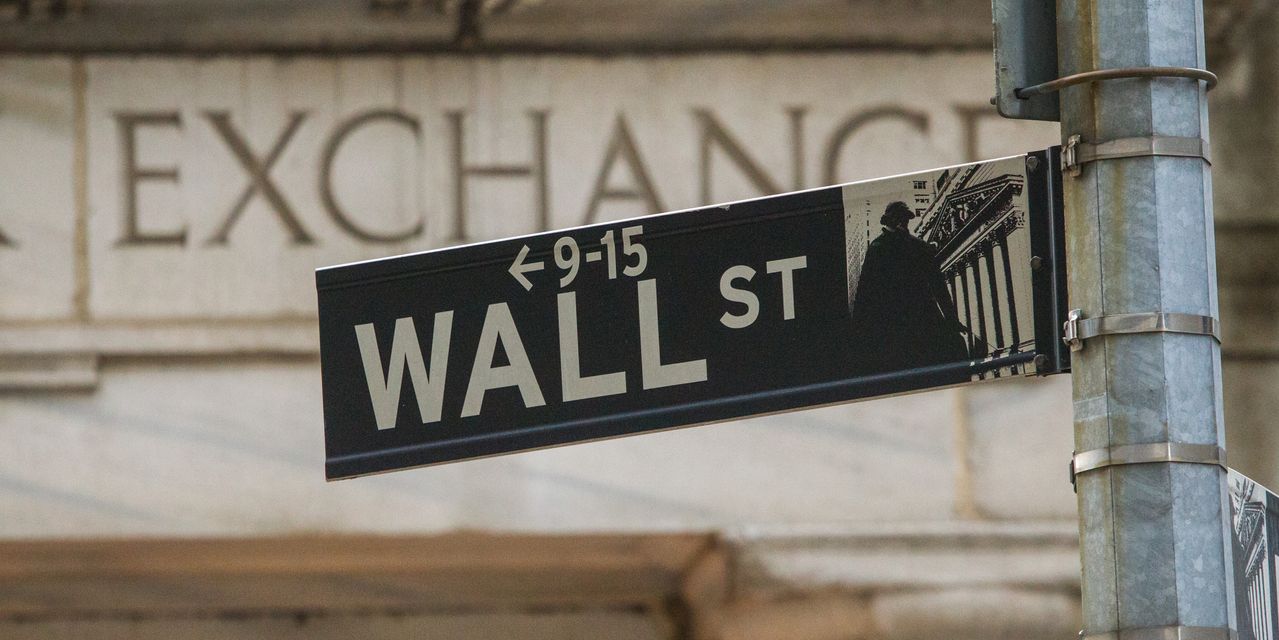U.S. stocks regained their footing Thursday, erasing early losses a day after suffering their biggest drop in more than three months following a downgrade of the U.S. sovereign-credit rating.
What’s happening
-
The Dow Jones Industrial Average
DJIA
rose 46 points, or 0.1%, to 35,329. -
The S&P 500
SPX
edged up 3 points, or 0.1%, to 4,516. -
The Nasdaq Composite
COMP
added 41 points, or 0.3%, to trade at 14,014.
On Wednesday, the S&P 500 retreated 1.4%, its largest one-day percentage decline since April 25.
What’s driving markets
After a rocky start to trading on Thursday, U.S. stocks erased losses following a stronger-than-expected reading on U.S. workers’ productivity.
Official government data showed productivity grew at an annualized pace of 3.7%, which boosted hopes that wage growth might slow, putting more downward pressure on inflation.
“The fact that productivity came in stronger than expected — from the inflation perspective, that’s pretty good news,” said Peter Cardillo, chief market economist at Spartan Capital Securities, during a phone interview with MarketWatch.
The broader market also got a boost from rising energy stocks and bank stocks. Energy stocks benefited from rising oil prices after Saudi Arabia announced it would extend an oil production cut through September.
The S&P 500 energy sector
XX:SP500.1010
rose 1.7% to lead the market higher as a result.
West Texas Intermediate crude futures for September delivery
CLU23,
rose 2.7% to $81.60 a barrel.
Technology names also pushed higher ahead of earnings from “Magnificent Seven” stocks Apple Inc.
AAPL,
and Amazon.com Inc.
AMZN,
due out after the close on Thursday.
See: Apple earnings: What to expect from the iPhone maker
Strong productivity data helped boost technology stocks by bolstering expectations that inflation had continued to ebb in July. The July consumer-price index is due next week.
“The market is looking forward and the next catalyst will probably be low inflation,” Cardillo added.
But before next week’s inflation report, investors will receive the July nonfarm payrolls report from the Labor Department on Friday. Economists expect to see that 200,000 jobs were created last month.
See: July jobs forecast: 200,000. Still too hot for the Fed, but the devil is in the details.
In other economic-data news, U.S. investors also received another update on the labor market on Thursday, this time it was weekly data on the number of Americans applying for unemployment benefits. The figure inched up to 227,000 last week, although economists continue to see no signs of rising layoffs.
The decision late Tuesday by Fitch Ratings to downgrade the U.S. credit rating has continued to impact both Treasurys and, by extension, U.S. stocks. It’s complicating investors’ feelings about Treasury debt just as the Treasury is preparing to issue $1 trillion in new debt during the third quarter.
Fitch’s decision was criticized by observers including former U.S. Treasury Secretary Larry Summers and JPMorgan CEO Jamie Dimon, but yields have continued to push higher following the decision, with the 30-year Treasury yield on track to settle at its highest level since November.
Key Words: Warren Buffett dismisses Fitch downgrade: ‘There are some things you shouldn’t worry about’
“Equity markets, specifically the Nasdaq, were spooked by the news that the Treasury Department boosted the size of its quarterly sale of longer-term debt for the first time in over 2 ½ years,” said Kent Engelke, chief economic strategist and managing director at Capitol Securities Management.
So far, U.S. stocks have seen a lackluster start to August, a month that typically sees some of the weakest stock-market returns of the year. The S&P 500 fell 1.4% on Wednesday, its biggest drop since April, and some analysts see scope for the pullback to continue in the days and weeks ahead. The Nasdaq Composite shed more than 2% in its biggest pullback since December.
Companies in focus
-
Qualcomm Inc.
QCOM,
-8.87%
shares tumbled after the chip maker tied revenue growth to recoveries in the smartphone market and China. -
PayPal Holdings Inc.
PYPL,
-10.84%
stock fell 8% after the payments company reported quarterly revenue slightly above Wall expectations but its credit business raised concerns. -
MGM Resorts International
MGM,
-8.24%
shares fell despite the casino and resort operator reporting second-quarter results that beat expectations, helped by the lifting of pandemic restrictions in global gaming hub Macau. -
Robinhood Markets Inc.
HOOD,
-6.35%
shares fell after the stock-trading app reported revenue and profit that beat expectations but a drop in transaction sales and monthly active users. -
Moderna Inc.
MRNA,
+0.16%
rallied after the COVID vaccine market posted a narrower-than-expected second-quarter loss and revenue that was far below last year’s but still topped consensus estimates. -
Exxon Mobil Corp.
XOM,
+2.39%
shares rose alongside oil prices following Saudi Arabia’s production-cut extension.
Read the full article here





